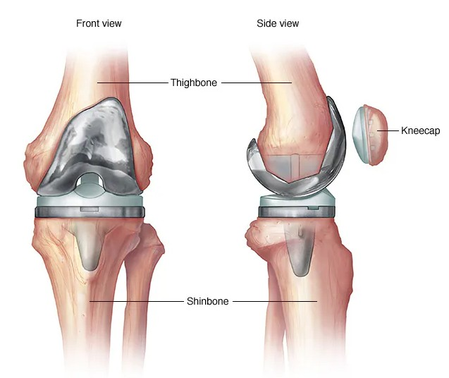

New Delhi, July 10 (IANS) Diabetes may not only lead to joint pain that can severely damage your knee but also increase the risk of infections and blood clots after knee replacement surgery, according to a new study led by Indian researchers.
More than half of people with diabetes have coexisting arthropathy — disease or condition affecting a joint — and may need a hip or knee arthroplasty (joint replacement surgery) in the future.
The study led by researchers from the Vardhman Medical College & Safdarjung Hospital, New Delhi, showed that diabetes is a significant risk factor for joint infection following total knee arthroplasty (TKA) — a popular and effective surgery for patients with advanced knee arthritis.
Deep vein thrombosis (DVT) or blood clots is another crucial postoperative complication after TKA, which may also cause pulmonary embolism — a blood clot causing a blockage in pulmonary arteries in the lungs.
The condition can result in increased morbidity and mortality.
“The presence of diabetes significantly impacts post-TKA outcomes, leading to higher complication rates and negatively affecting physical function and quality of life,” said the researchers, including from Indraprastha Apollo Hospitals and Fortis C-Doc Hospital.
“Insulin-treated diabetics face 60 per cent higher perioperative adverse events. Poor sugar control around TKA surgery worsens outcomes,” they added, in the paper published in the Journal of Orthopaedics.
The findings based on systematic reviews and meta-analyses showed that people with diabetes undergoing TKA face a 43 per cent higher risk of periprosthetic joint infection (PJI) and are 45 per cent more likely to experience deep vein thrombosis (DVT).
The rates of hospital readmissions were significantly higher, showing a 28 per cent increase. Those with insulin-treated diabetes exhibited a 60 per cent greater incidence of perioperative adverse events.
The researchers called for further rigorous studies to establish standardised definitions for glycemic control and to investigate mechanisms contributing to increased risks, facilitating improved preoperative risk stratification and management strategies for diabetic patients undergoing TKA.
–IANS
rvt/







